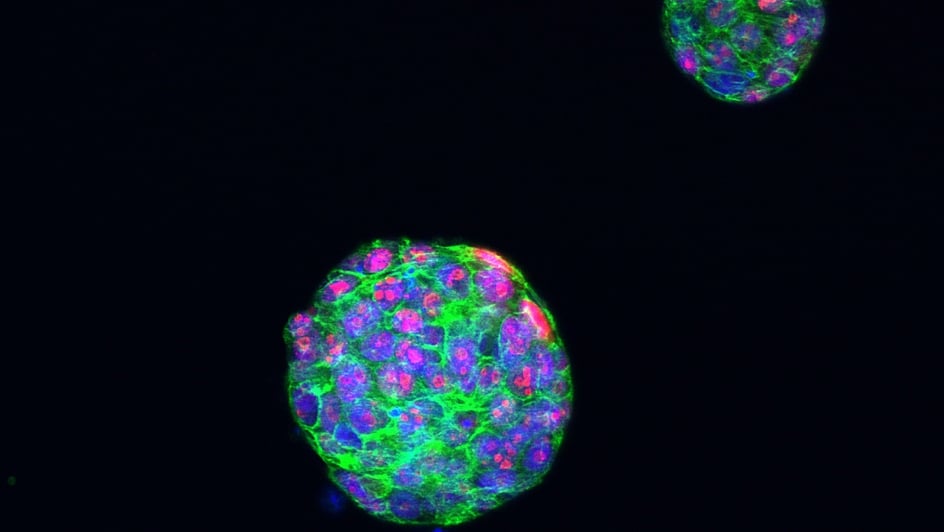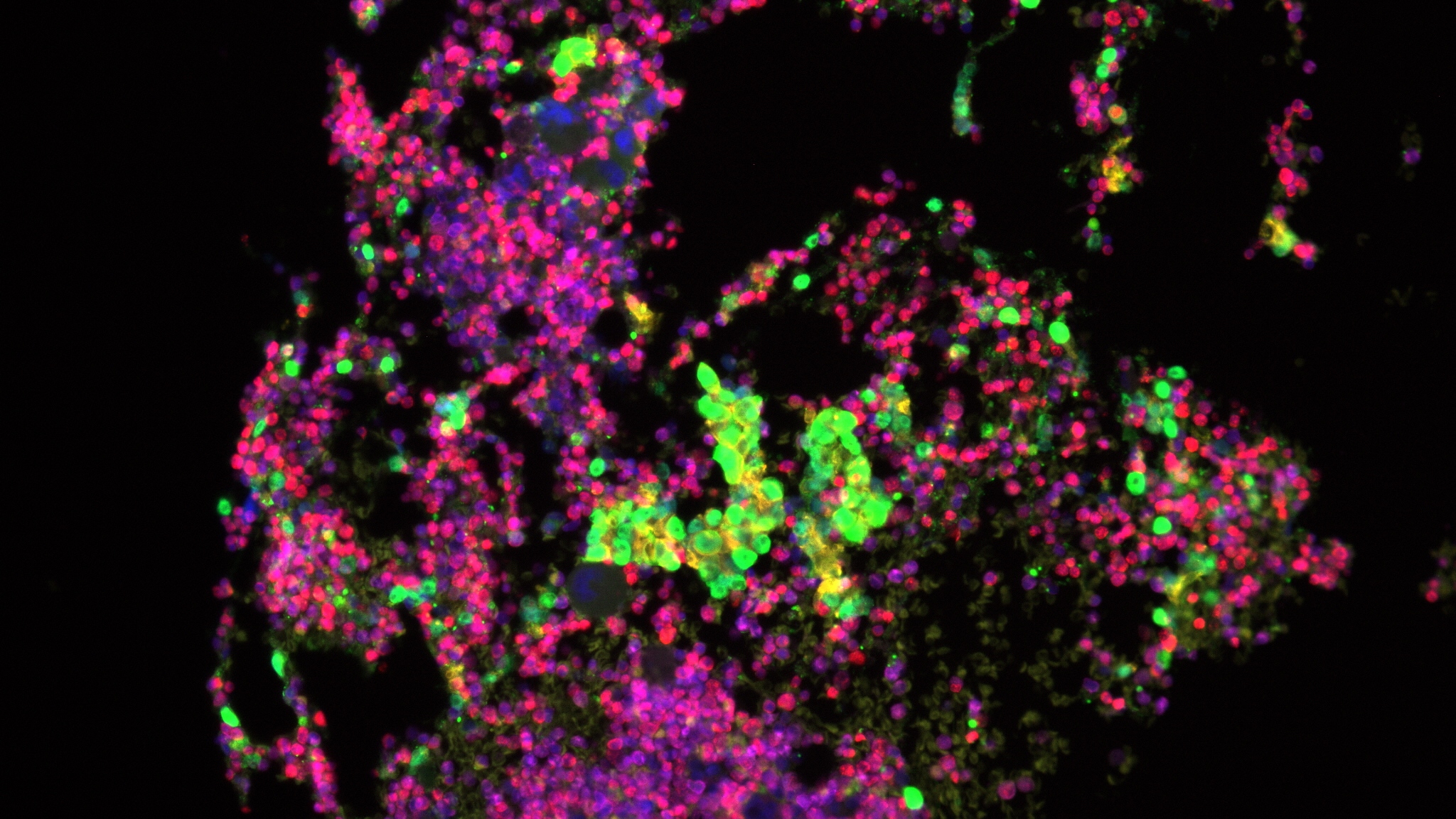Our discovery of the BRCA2 cancer gene
In 1995, our researchers discovered the cancer gene BRCA2, which, when mutated, can make carriers more likely to develop cancer. This discovery means that families can now assess their cancer risk through genetic testing.
Some people with BRCA mutations can be closely monitored or choose to take preventative measures, such as actress Angelina Jolie.
25th anniversary
On the 25th anniversary of our discovery of the BRCA2 gene, we’ve compiled news stories, blog posts and videos on our pioneering research into BRCA genes. Join the conversation on Twitter: #BRCA2Anniversary
What are the BRCA genes
BRCA1 and BRAC2 are genes that we all carry. These genes normally protect us against cancer. But if you inherit mutations of these genes - ‘faulty’ versions that don’t work as they should - this increases your risk of developing cancer.
People with mutations in BRCA1 and BRCA2 genes are at increased risk of developing certain cancers, including:
- breast cancer, in women and men
- ovarian, fallopian tube, prostate, pancreatic and lung cancers, and
malignant melanoma.
Cancer prevention and treatment
Our research into BRCA genes has led to discoveries for cancer prevention and treatment. This includes better diagnostic and risk testing, the development of a new class of drugs and new targeted therapies for related cancers.
Related pages
Latest ICR News

ICR welcomes NICE recommendation of capivasertib for advanced breast cancer
The Institute of Cancer Research, London, strongly welcomes the decision by NICE to recommend the targeted breast cancer drug, capivasertib, in combination with fulvestrant, for treating the most common type of advanced breast cancer with specific biomarker alterations (PIK3CA, AKT1 or PTEN).

Simple spit test could finally turn the tide on prostate cancer
A spit test, where a sample can be collected at home, is more accurate at identifying future risk of prostate cancer for some men than the current standard PSA blood test, according to a study by ICR scientists.